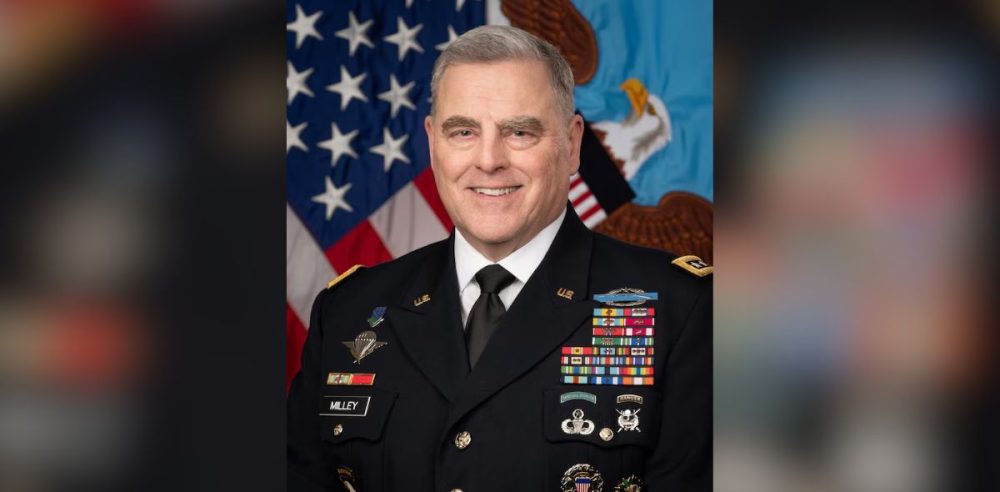On Monday, a portrait of retired General Mark Milley, the former Chairman of the Joint Chiefs of Staff, was quietly taken down from its display in the Pentagon.
The move, which came just days after the portrait was unveiled, has raised some speculation, particularly due to Milley’s very rocky relationship with President Donald Trump.
Multiple journalists first revealed the removal of the portrait by sharing photographs of the blank space on social media. A Pentagon spokesperson confirmed the removal but referred all further questions to the White House. Afterward, a White House National Security Council representative declined to comment on the reason behind the decision, per The Hill.
On his first day in office, January 20, Trump took to his Truth Social platform to express the removal of several individuals, including Milley from the National Infrastructure Advisory Council:
Our first day in the White House is not over yet! My Presidential Personnel Office is actively in the process of identifying and removing over a thousand Presidential Appointees from the previous Administration, who are not aligned with our vision to Make America Great Again.
Let this serve as Official Notice of Dismissal for these 4 individuals, with many more, coming soon:
Jose Andres from the President’s Council on Sports, Fitness and Nutrition, Mark Milley from the National Infrastructure Advisory Council, Brian Hook from the Wilson Center for Scholars, and Keisha Lance Bottoms from the President’s Export Council—YOU’RE FIRED!
The portrait, displayed in the Pentagon since January 10, was positioned alongside those of other former Joint Chiefs chairs. Milley, who retired in 2023, was appointed by President Trump in 2019. However, the two men quickly found themselves at odds over several national security issues, leading to a public feud that continued long after Trump left office.
Tensions reached a boiling point when Trump’s allies accused Milley of undermining the President’s authority. The fallout from those reports fueled a growing rift between the two, with Trump publicly criticizing Milley on multiple occasions, especially driven by Milley’s involvement in the House committee established to investigate the January 6 events at the Capitol.
In response, Milley has not held back in his criticism, calling Trump a “fascist” and publicly denouncing many of his policies.
The removal of the portrait is noteworthy, as it comes just a few days after President Joe Biden issued a series of preemptive pardons, including one for Milley.
In one of his final acts as President, Biden issued pardons for Dr. Anthony Fauci, Milley, and House committee members who investigated events on January 6, using his executive power to protect them from potential “revenge” under the incoming Trump administration, according to AP News.
Biden also granted preemptive pardons to more of his family members, citing attacks aimed at harming him personally. His previous pardon of his son Hunter for felony gun and tax charges had already drawn significant criticism, as previously reported by The Dallas Express.
As Milley moves further into retirement – his legacy and the tensions surrounding it – appear far from resolved.
As of publication, the Pentagon and White House have yet to provide further clarification on the portrait’s removal.


